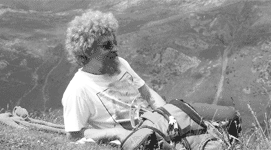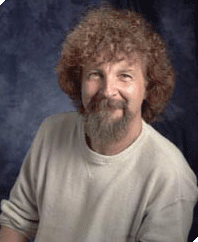









 Wojciech Hubert Zurek (born 1951) was educated in Kraków, Poland (M.Sc. 1974) and Austin, Texas (Ph.D. 1979). He spent two years at Caltech as a Tolman Fellow, and started at Los Alamos as an Oppenheimer Fellow. He was the leader of the Theoretical Astrophysics Group at Los Alamos from 1991 until he was elected a Laboratory Fellow in the Theory Division in 1996. Zurek served as a member of the external faculty of the Santa Fe Institute, where he founded the Complexity, Entropy, and Physics of Information network, and has been a visiting professor at the University of California, Santa Barbara, where he co-organized the Quantum Coherence and Decoherence and the Quantum Computing and Chaos Programs at UCSB's Institute for Theoretical Physics. In 2005 he won the Alexander von Humboldt Prize, and in the 2004/2005 academic year he was a Phi Beta Kappa Visiting Lecturer. In 2009 Wojciech Zurek was awarded the Marian Smoluchowski Medal of the Polish Physical Society in recognition of his work on the quantum-classical transition.
Wojciech Hubert Zurek (born 1951) was educated in Kraków, Poland (M.Sc. 1974) and Austin, Texas (Ph.D. 1979). He spent two years at Caltech as a Tolman Fellow, and started at Los Alamos as an Oppenheimer Fellow. He was the leader of the Theoretical Astrophysics Group at Los Alamos from 1991 until he was elected a Laboratory Fellow in the Theory Division in 1996. Zurek served as a member of the external faculty of the Santa Fe Institute, where he founded the Complexity, Entropy, and Physics of Information network, and has been a visiting professor at the University of California, Santa Barbara, where he co-organized the Quantum Coherence and Decoherence and the Quantum Computing and Chaos Programs at UCSB's Institute for Theoretical Physics. In 2005 he won the Alexander von Humboldt Prize, and in the 2004/2005 academic year he was a Phi Beta Kappa Visiting Lecturer. In 2009 Wojciech Zurek was awarded the Marian Smoluchowski Medal of the Polish Physical Society in recognition of his work on the quantum-classical transition.
Developing theory of decoherence and elucidating its significance for the quantum–to–classical transition is Zurek’s major contribution to physics. Zurek also demonstrated (with Wootters) that an unknown quantum cannot be cloned. This is a fundamental result, and an essential distinction between classical and quantum information. Furthermore, Zurek has vastly extended Kibble’s cosmological scenario to develop a successful general theory of phase transition dynamics (“Kibble-Zurek mechanism”) that has been verified experimentally in superconductors and superfluids (including BEC’s).
Operated by Los Alamos National Security, LLC for the U.S. Department of Energy's NNSA
LANL | © Copyright 2007-8 Los Alamos National Security, LLC All rights reserved | Disclaimer/Privacy
LANL | © Copyright 2007-8 Los Alamos National Security, LLC All rights reserved | Disclaimer/Privacy
